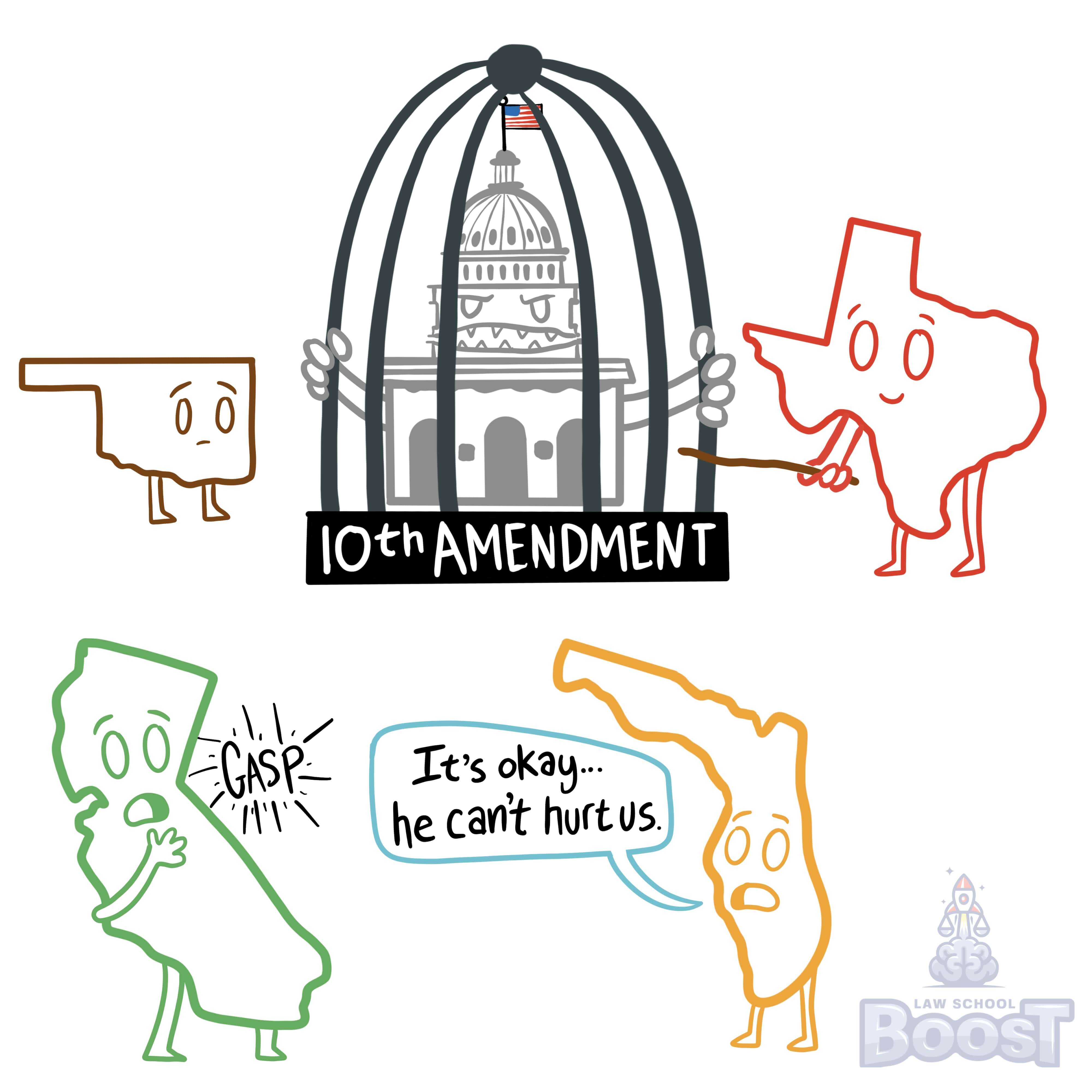🇺🇸
Constitutional Law • Congressional Authority to Act
CONLAW#022
Legal Definition
The 10th Amendment limits congressional powers, and reserves to the states or people all powers not granted to the United States or prohibited by it.
Plain English Explanation
At the heart of the 10th Amendment is the idea of balancing power between the federal government and the states. The Constitution grants specific powers to Congress and the federal government, but the framers of the Constitution were concerned that the federal government might try to extend its reach beyond these specified powers. To address this, they added the 10th Amendment, which clearly states that any powers not expressly given to the federal government by the Constitution are reserved for the states or the people.
This means that Congress cannot simply invent new powers for itself. If the Constitution doesn’t directly grant a power to Congress, then Congress doesn’t have it. However, it’s important to understand that the interpretation of what powers Congress does have has expanded over time, particularly through the Necessary and Proper Clause and the Commerce Clause. These interpretations have allowed for a broader application of federal power in some areas.
Traditionally, powers related to education, <marriage>, and local law enforcement are seen as belonging to state and local governments. The 10th Amendment helps ensure that states maintain control over these local matters, acting as a safeguard against federal overreach. It’s a key component in preserving state sovereignty and keeping the federal government within its constitutionally defined limits.
This means that Congress cannot simply invent new powers for itself. If the Constitution doesn’t directly grant a power to Congress, then Congress doesn’t have it. However, it’s important to understand that the interpretation of what powers Congress does have has expanded over time, particularly through the Necessary and Proper Clause and the Commerce Clause. These interpretations have allowed for a broader application of federal power in some areas.
Traditionally, powers related to education, <marriage>, and local law enforcement are seen as belonging to state and local governments. The 10th Amendment helps ensure that states maintain control over these local matters, acting as a safeguard against federal overreach. It’s a key component in preserving state sovereignty and keeping the federal government within its constitutionally defined limits.
Visual Aids

Related Concepts
How may Congress use its taxing power?
May Congress prohibit harmful commercial activities?
Under Lopez, when may Congress regulate commerce?
What are the Constitutional limitations on Congress' authority to act?
What are the Constitutional limitations on federal police power?
What is the effect of the Anti-Commandeering Doctrine of the 10th Amendment?
What is the impact of the necessary and proper clause?
What is the importance of Section 5 of the 14th Amendment?
When may Congress use its spending power?


